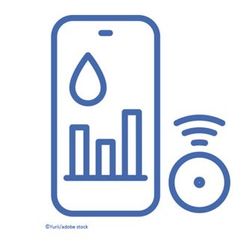© 2025 MJH Life Sciences™ , Patient Care Online – Primary Care News and Clinical Resources. All rights reserved.
Lifestyle Medicine Is at a Tipping Point in the US, Expert Says, and It Could Be Just in Time
Without a shift in the approach to disease prevention and management in the US, the health system won't be able to handle the burden of our morbidity, says Richard Rosenfeld, MD, MPH, MBA.
"We realize the health system cannot survive with what we're doing to ourselves. With over 80% of people in the US living with overweight or obesity, it's just not sustainable."
As medical specialties go, lifestyle medicine is on the young side, Richard Rosenfeld, MD, MPH, MBA, told Patient Care© during a recent interview. In fact, the discipline is just a little over 20 years old, he said, but its growth lately has been exponential. Membership in the American College of Lifestyle Medicine has grown to more than 13,000, three-quarters of whom are physicians. The first board exam for certification in lifestyle medicine was offered in 2017 and the certification has been awarded to 4000 individuals in the US and another 4000 worldwide, Rosenfeld explained.
Rosenfeld is well versed in the tenets of lifestyle medicine; he follows a plant-based whole foods diet, is a regular runner and New York Marathon finisher, and is the developer and lead author of new guidelines titled Lifestyle interventions for treatment and remission of type 2 diabetes and prediabetes in adults: a clinical practice guideline from the American College of Lifestyle Medicine.
The guidelines incorporate the 6 pillars of lifestyle medicine into practical, action-based recommendations that place sustained behavior change ahead of medication, when feasible, to prevent and manage chronic disease.
5. Positive social connections 6. Avoidance of risky substances
"We're at a real tipping point with lifestyle medicine in this country," Rosenberg cautioned, indicating that the time is right for the wholistic approach to disease prevention and management. "We realize the health system cannot survive with what we're doing to ourselves. With over 80% of people in the US living with overweight or obesity, it's just not sustainable."
Rosenberg offers more details in the short video above.
The following transcript has been edited for style and flow.
Patient Care: Would you talk about the importance of the impact the ACLM guideline on lifestyle intervention as medicine can have?
Richard Rosenfeld, MD, MPH, MBA: Well, I, in my completely unbiased view as the lead author and developer of the guideline, I'd say I think the impact is extremely optimistic. Having done a lot of guideline work in the past, there tend to be some people that come out kicking and screaming at the end [of the process] about something. So far, I've seen nothing but very positive, laudatory feedback on this document from many different sides.
And it's just [been released], so a lot of people aren't even aware of it yet. I think as [the guideline] gains traction, it's going to make a big impact, in operationalizing and empowering people to do these things. We don't want them to just think about, “Gee, I need more sleep,” or “Gee, I’ve got to eat better and get a little exercise.” Those things never lead to sustained or even meaningful change.
So, as tools in the toolbox, I think the recommendations are great. We're also at a real tipping point with lifestyle medicine in this country. The discipline is only a little over 20 years old, and it's had exponential growth recently, now at a little over 13,000 members of the American College of Lifestyle Medicine, about three-quarters of whom are physicians. The remaining members are other health professionals.
From a certification standpoint, board certification in lifestyle medicine is offered through an independent board. I believe the first exam was in 2017, and now there are about 4,000 certified individuals in the U.S. and another 4,000 around the world.
I think we've seen a bit of a tipping point. We realize the health system cannot survive with what we're doing to ourselves. With over 80% of people in the U.S. living with overweight or obesity, it's just not sustainable.
So, we'll see. We're still, in the words of Jim Collins from Good to Great, pushing that massive flywheel, waiting for it to take off. But my hope is that we're close to the flywheel getting its momentum and spinning around. We'll see.
Richard Rosenfeld, MD, MPH, MBA, is the distinguished professor of otolaryngology, SUNY Downstate Health Sciences University and senior advisor for quality and guidelines for the American Academy of Otolaryngology – Head and Neck Surgery. Rosenfeld is board certified in otolaryngology – head and neck surgery and in lifestyle medicine.
For an at-a-glance preview of the 14 lifestyle interventions recommended in the American College of Lifestyle Medicine's guideline, see Guideline Topline: 14 Key Lifestyle Interventions to Treat, Prevent Type 2 Diabetes
Related Content:



